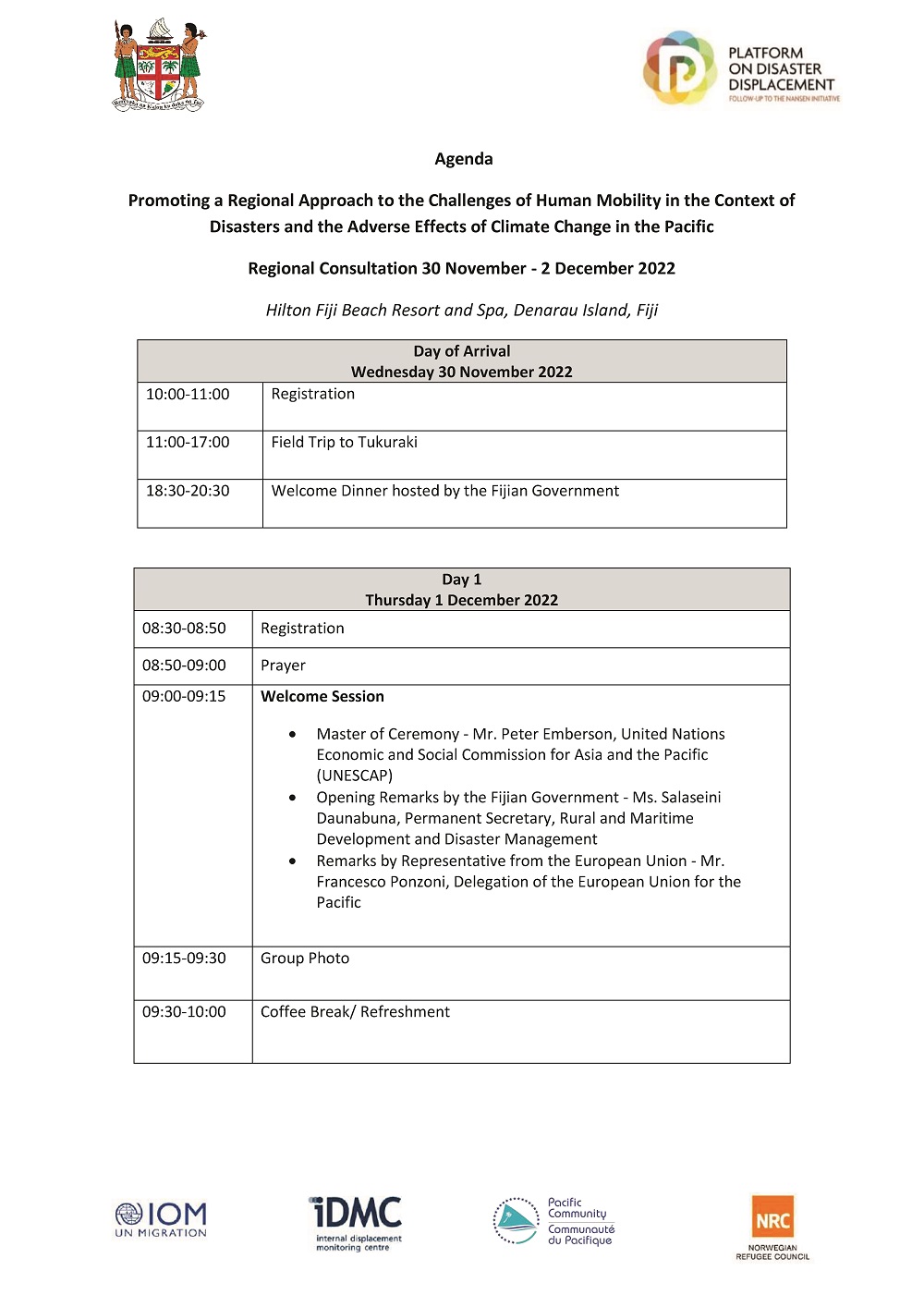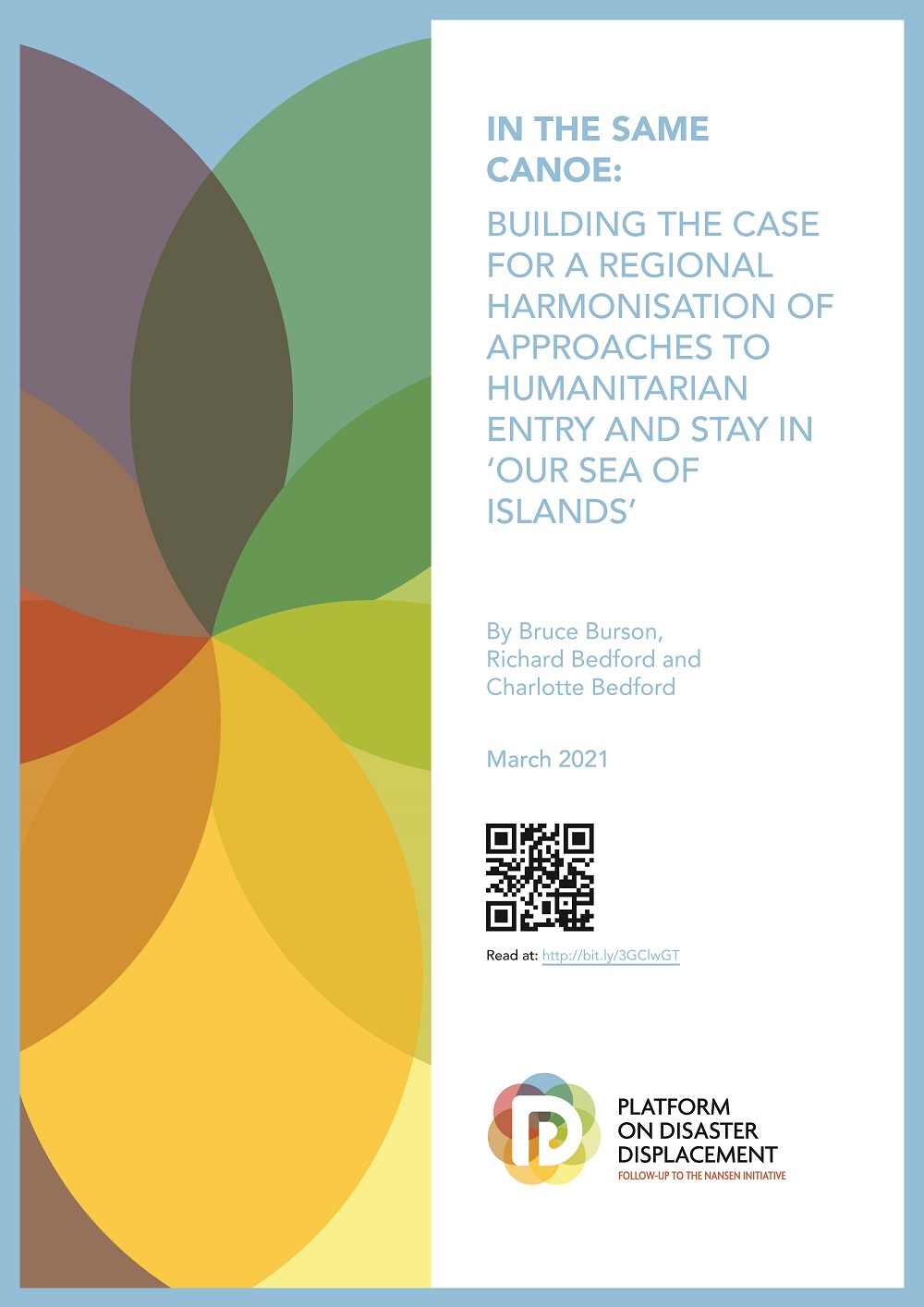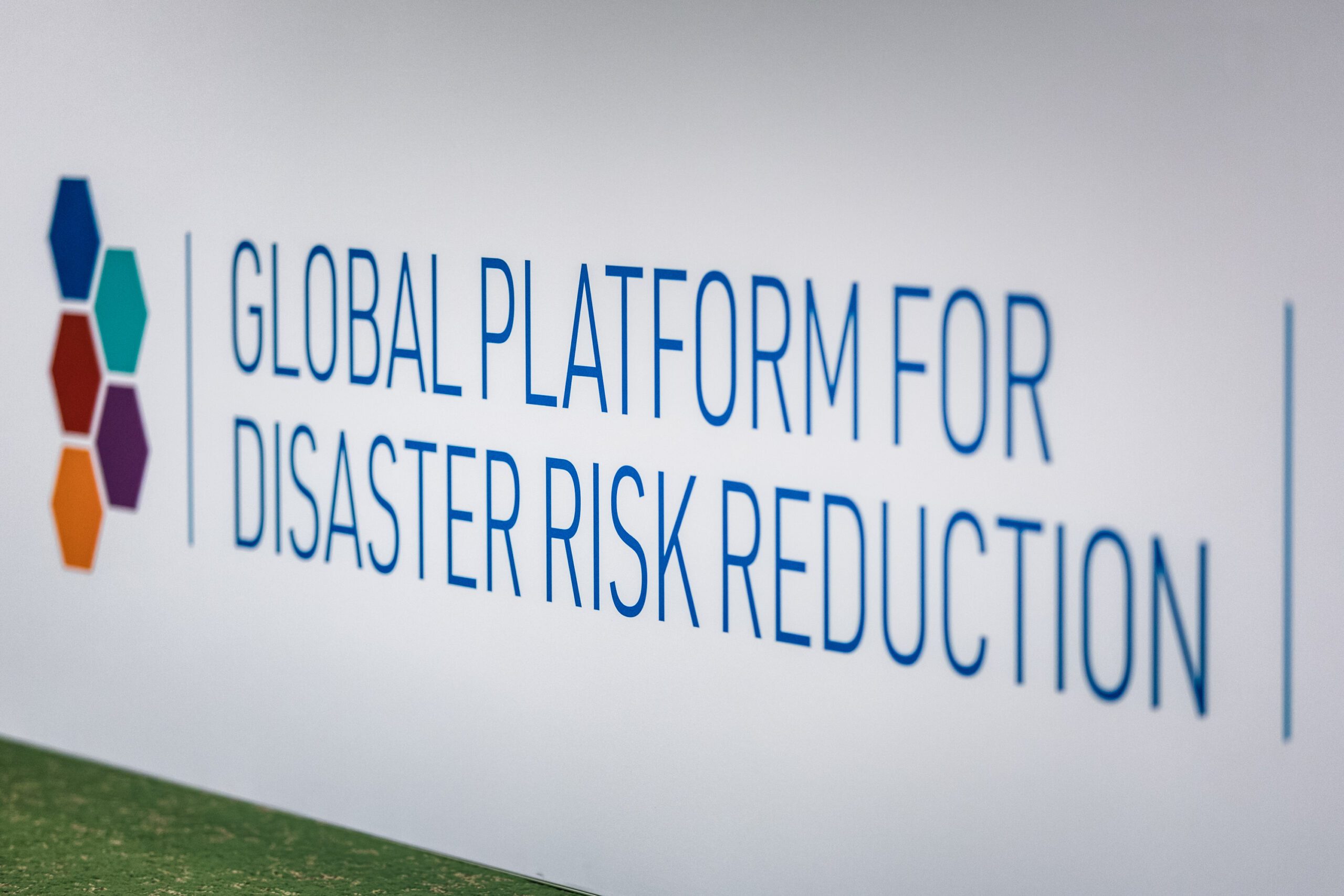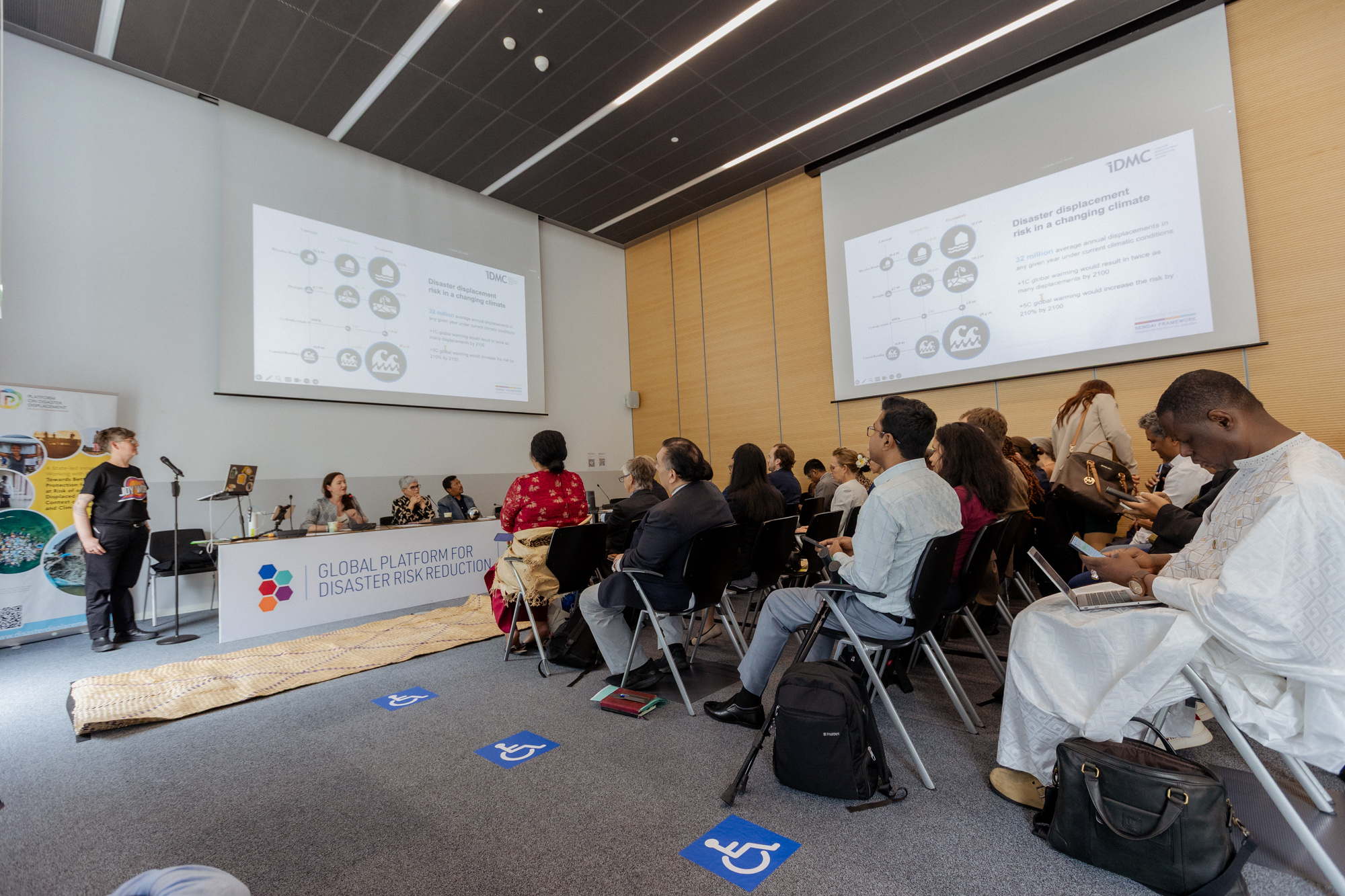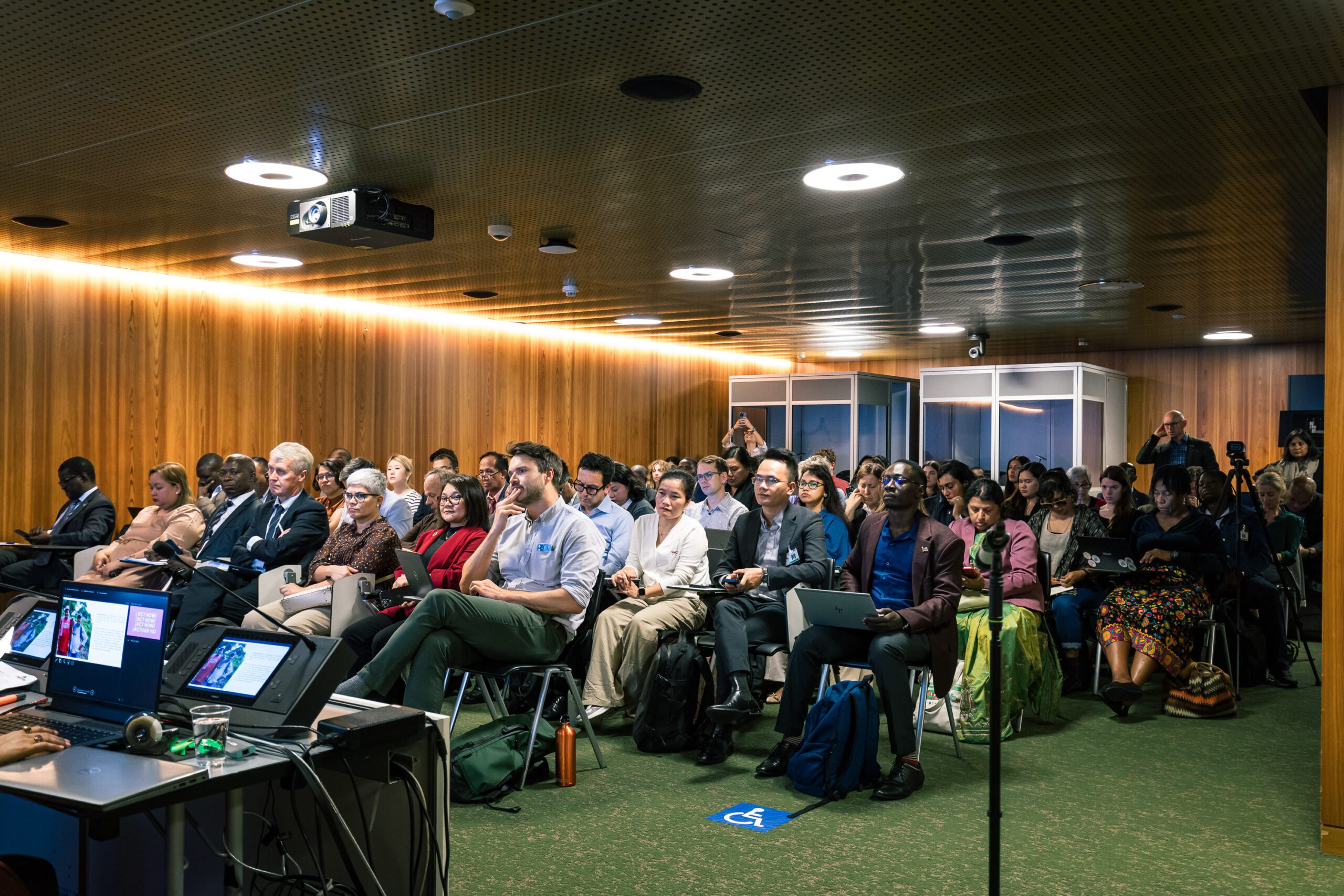Reporting Back from the Pacific Regional Consultation
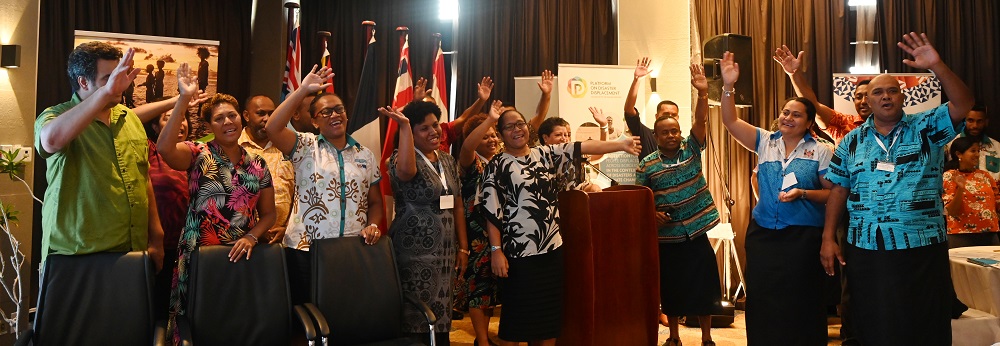
The Government of Fiji, as the outgoing Chair of the Platform on Disaster Displacement (PDD), convened the Regional Consultation on “Promoting a Regional Approach to the Challenges of Human Mobility in the Context of Disasters and the Adverse Effects of Climate Change in the Pacific” in Nadi, Fiji, from 30 November – 2 December 2022 in partnership with PDD, the Internal Displacement Monitoring Centre (IDMC), the International Organization for Migration (IOM), the Norwegian Refugee Council (NRC) and the Secretariat of the Pacific Community (SPC). The meeting was supported with funding from the incoming Chair of PDD, the European Union (EU), and the German Government.
The Regional Consultation was attended by more than 70 participants including representatives from Pacific Island Countries (PICs), PDD Steering Group members, Regional and International Organizations, partners of the Pacific Climate Change Migration and Human Security Programme (PCCMHS), the Pacific Islands Forum, UN agencies, civil society and academia. Participation from the eight PICs included the Cook Islands, the Marshall Islands, Kiribati, Tonga, Samoa, the Solomon Islands and Tuvalu, the host country Fiji, and Australia and New Zealand.
The consultation involved discussions on lessons learned and effective practices on averting, minimizing, and addressing displacement in the context of disasters and the adverse effects of climate change, and how to support ongoing efforts to develop national and regional approaches to addressing challenges related to displacement in the context of climate change in the Pacific.
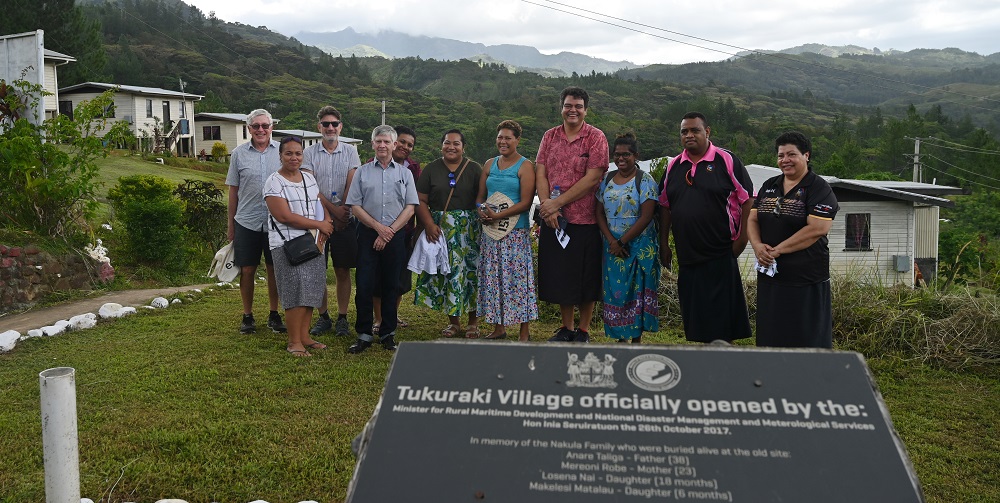 On the first day of the meeting, participants visited a planned relocated site in Tukuraki in the highlands of Ba province, Fiji where a community displaced by a landslide found new homes. The visit provided an opportunity to learn about the complexities of planned relocation and internal displacement and ways to address them.
On the first day of the meeting, participants visited a planned relocated site in Tukuraki in the highlands of Ba province, Fiji where a community displaced by a landslide found new homes. The visit provided an opportunity to learn about the complexities of planned relocation and internal displacement and ways to address them.
The meeting discussions were officiated by the Permanent Secretary for Rural and Maritime Development and Disaster Management of Fiji on 1 December 2022. In her welcome remarks, the Permanent Secretary emphasized that the Pacific is “living” the climate crisis “on a daily basis”. She said “Disasters have tested the resilience of Pacific communities, in responding to the impacts of climate change such as more frequent and longer droughts, increased severity of tropical cyclones, flooding, coastal erosion, and loss of arable land, are forcing us to leave our homes. Preventing and responding to disaster displacement, will require tailored approaches to confront specific challenges that are compounded by impacts of poverty and inequality, the climate and biodiversity crisis, and the Covid-19 pandemic.”
The Consultation formally marked the handover of the Chairmanship of the PDD to the European Union. Fiji was Chair of the PDD Steering Group from 1 January 2021 to 30 June 2022, while the EU chairs the PDD from 1 July 2022 to 31 December 2023. The EU pledged to build on the achievements made under the Fijian Chairmanship of the PDD and presented the priorities for the EU’s tenure as Chair of the PDD.
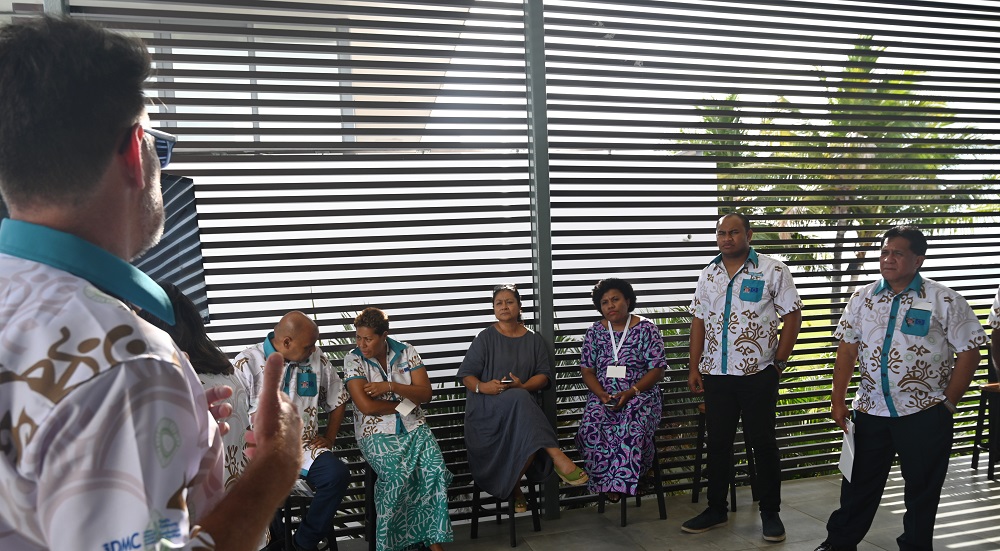 In working groups, participants got together to discuss the harmonization of approaches on humanitarian entry and stay in the context of disasters and climate change; to discuss lessons learned and next steps of the PRDD Project; to reflect on outcomes of COP27 and discuss elements for key messages for COP28 and to prepare input to the Sendai Framework Midterm Review. The meeting reflected on the continued consultations among PICs and other stakeholders in their efforts at developing a robust and practical draft regional framework on climate mobility in the Pacific. The framework will provide guidance to Member States to address the key issues emerging in the context of climate change, disasters, and related mobility.
In working groups, participants got together to discuss the harmonization of approaches on humanitarian entry and stay in the context of disasters and climate change; to discuss lessons learned and next steps of the PRDD Project; to reflect on outcomes of COP27 and discuss elements for key messages for COP28 and to prepare input to the Sendai Framework Midterm Review. The meeting reflected on the continued consultations among PICs and other stakeholders in their efforts at developing a robust and practical draft regional framework on climate mobility in the Pacific. The framework will provide guidance to Member States to address the key issues emerging in the context of climate change, disasters, and related mobility.
Some key recommendations from the panel discussions, working groups and presentations of national and regional approaches to the challenges of human mobility in the context of disasters and climate change include: displacement and relocation should be seen as last resort; continued engagement at the global stage will be crucial; there is a need for coherent policies when addressing the issue of displacement; solutions need to be tailored to local context; a human-rights and whole-of-society-approach will need to be adopted; dedicated capacities and resources need to be put in place; and regular consultation will allow to build on existing initiatives in this field.
In closing, Professor Kaelin, the Envoy of the Chair of the PDD shared a number of important conclusions and recommendations from the rich discussions over the three-day meeting.
It became very clear that Pacific Islanders “want to stay but may have to move” and this dilemma needs to be carefully addressed. He sees huge potential of “building on the Pacific’s rich cultural traditions to frame a regional human mobility framework that is owned by its governments, civil society and affected communities”. This would “allow for a holistic approach that uses a whole set of available tools to reduce climate-related hazards, to help people to stay, to move out of harm’s way including through planned relocation, to protect those who are internally displaced as well as those who are stranded as migrants abroad when return becomes temporarily impossible”.


